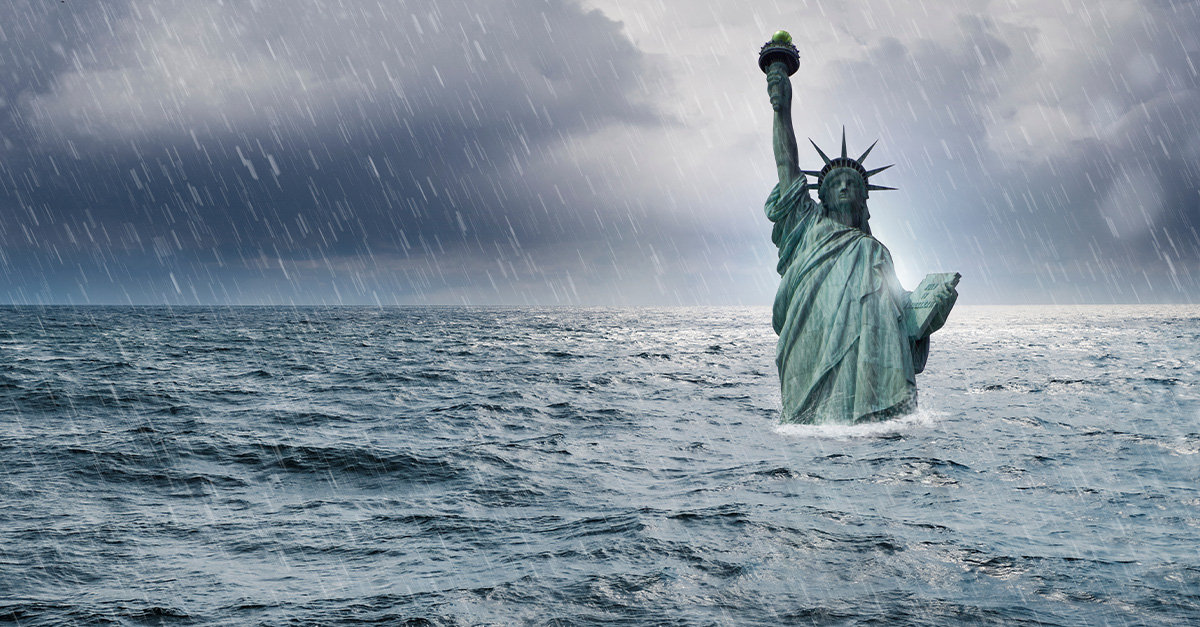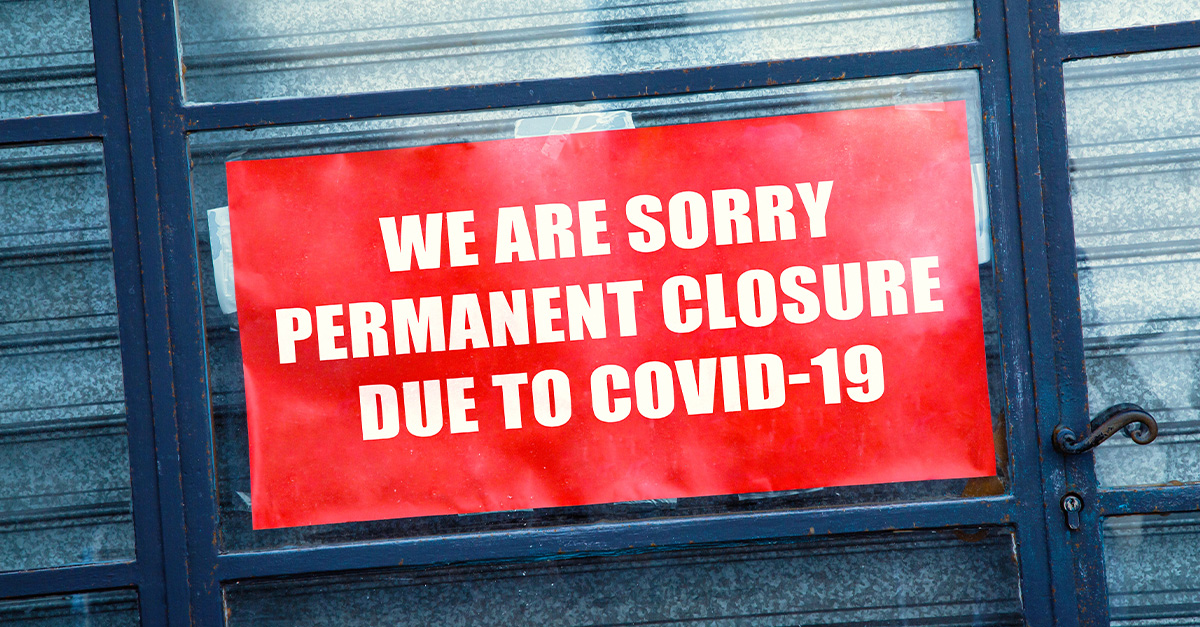


Get a free copy of Parental Rights & Education when you subscribe to our newsletter!

“What climate change activists and alarmists fail to understand is that human beings aren’t a ‘disease’ on the world or a ‘sickness’ plaguing the environment. No, we are the crown jewel of creation and every natural resource on earth, from wheat to coffee beans to crude oil, is made by God to be used by and for the good of mankind.”
–WILLIAM WOLFE
Read part 2 of this series here.
Climate change is back in the news in a big way. On Wednesday, President Biden announced that he was taking executive actions “to address extreme heat and boost offshore wind.”
Using apocalyptic rhetoric, Biden declared that “Climate change poses an existential threat to the U.S. and the world” and that since Congress hasn’t passed the Green New Deal (a massive socialist spending package) he had to take action to address the “emergency.” According to USA Today, Biden hinted “at a national emergency declaration he might make to unlock federal resources” and said he was “‘running the traps on the totality of the authority I have’ and will decide soon whether to declare a climate emergency.”
While this type of fearmongering is irresponsible, if you have been paying attention to the “climate crisis” rhetoric used by the media and the liberal left on this issue, you’ve heard this all before.
In fact, you’ve heard it for years. Let’s rewind the tape.
In the 1970s, climatologists were actually predicting that a “new ice age” might be right over the climate horizon. Newsweek ran an article entitled “The Cooling World.” There was even a recent video circulating from that period, produced by the History Channel, warning that Buffalo, New York-style winters might soon be normal across the entire United States.
That didn’t happen. And somewhere along the way, we traded the threat of global cooling for global warming.
Fast forward to the current century. In 2004, The Guardian published an article entitled “Now the Pentagon tells Bush: climate change will destroy us,” sharing details of a report warning “that major European cities will be sunk beneath rising seas as Britain is plunged into a ‘Siberian’ climate by 2020.”
In 2006, former Vice President Al Gore released his now infamous documentary, “An Inconvenient Truth,” which prophesied, among other things, that human-caused global warming would melt glaciers, raise sea levels in American cities along both coasts, and displace 100 million refugees. As time has proven, the most inconvenient thing about his climate alarmism is the truth itself. The Statute of Liberty isn’t underwater. Sea levels are more or less what they have always been — the same goes for the overall temperature of the planet. Gore still flies all over the globe on private jets, powered by fossil fuels.
By 2018, the mantle of lead climate alarmist had changed, however, passing from Gore to Greta. Greta Thunberg, the Swedish child, burst onto the climate activist scene for her protests outside of the Swedish parliament at the age of 15. In 2019, she gave her “How dare you” speech at the United Nations Climate Action Summit. In her speech, she berates world leaders, claiming that they
“have stolen my dreams and my childhood with your empty words. And yet I’m one of the lucky ones. People are suffering. People are dying. Entire ecosystems are collapsing. We are in the beginning of a mass extinction, and all you can talk about is money and fairy tales of eternal economic growth. How dare you!”
Just this year, in 2022, a popular progressive writer, Ezra Klein, published an article in the New York Times in which he recounts:
“Over the past few years, I’ve been asked one question more than any other. It comes up at speeches, at dinners, in conversation. It’s the most popular query when I open my podcast to suggestions, time and again. It comes in two forms. The first: Should I have kids, given the climate crisis they will face? The second: Should I have kids, knowing they will contribute to the climate crisis the world faces?”
Spot the pattern? Over the last 20 years, climate change activists — better, alarmists — have been sounding the alarm over an imminent climate catastrophe. Apparently, it’s so serious that some people are afraid to have children.
But none of it has, nor is likely to, come true (not according to honest scientific assessments). It’s not real. It’s Chicken Little revised and writ large for a brand-new fear-conditioned audience.
How, then, should Christians think about climate change? How should we respond to climate alarmism?
Briefly, let’s consider our language usage. When our media talks about “climate change” what they mean is anthropogenic, that is, man-made, climate change. However, the climate is always changing. But now, they act as if mankind, with our modern means of energy production and emissions, are somehow contributing to worldwide climate change, impacting global temperatures, sea levels, etc. This has not been proven to be true. I’ll continue to use “climate change” throughout this article, in reference to man-made climate change, but bear this in mind as you read the articles.
So, here are five key pillars for helping develop a biblical worldview on the climate.
In Genesis 1:26 we learn that man was created to “rule” over all the living things in creation and, by extension, creation itself:
“Then God said, ‘Let us make mankind in our image, in our likeness, so that they may rule over the fish in the sea and the birds in the sky, over the livestock and all the wild animals, and over all the creatures that move along the ground.’”
Man, and only man, is made in the image of God. That gives humanity a special value that no other living thing has — neither animals nor plants.
This is a foundational part of a Christian worldview on the environment and how we should think about climate change.
We continue reading in Genesis 1:29-30 that God gives “every seed-bearing plant” and every “tree that has fruit” for good to Adam and Eve and “every green plant” for food to the animals. The earth was made to be used, to be consumed, for the sake of human flourishing.
These verses are understood to be what’s known as the “Dominion Mandate.” While God placed Adam and Eve in the Garden of Eden, He didn’t intend for them to stay within those confines alone. As they obeyed His command to “be fruitful and multiply” they would also work to expand the Garden.
These basic ideas are confirmed again in Genesis 9:1 when God instructs Noah to “Be fruitful and increase in number and fill the earth.” Along with giving Noah and his offspring the fruit of trees to eat, He gives them animals as well. In fact, God gives them everything: Everything that lives and moves about will be food for you. Just as I gave you the green plants, I now give you everything” (Genesis 9:3).
What climate change activists and alarmists fail to understand is that human beings aren’t a “disease” on the world or a “sickness” plaguing the environment. No, we are the crown jewel of creation and every natural resource on earth, from wheat to coffee beans to crude oil, is made by God to be used by and for the good of mankind.
The planet was made for the purpose of supporting humans. There is nothing inherently morally wrong, then, with growing crops, clearing forests, or drilling for oil and natural gas. To provide one small example, the advent of refrigeration and electrical power in developing countries has saved millions of lives. Even if we granted that there was a net social cost imposed by carbon emissions, those costs are far outweighed by the benefit of cheap and available energy sources. As we consider these issues, we must always weigh the concrete benefits to humanity provided by energy creation, and not concern ourselves with measuring the health of the earth in the abstract, because, again, earth was made for humanity.
How we should care for the earth and its resources is another question, one of stewardship, but don’t let anyone tell you that there is something “evil” or “wrong” with burning coal or using plastic — that’s unbiblical.
Unfortunately, as we know all too well, the history of man takes a devastating turn in Genesis 3. Adam and Eve disobey God. They rebel against the Holy Creator. In that act of rebellion, they bring upon themselves the penalty of spiritual and physical death.
But it’s not just mankind that is cursed — it’s all of creation.
We see this first in Genesis 3:17-18 when God proclaims to Adam:
“Cursed is the ground because of you; through painful toil you will eat food from it all the days of your life. It will produce thorns and thistles for you, and you will eat the plants of the field.”
While the earth does not have a soul (and that’s important to note) and therefore isn’t cursed unto spiritual death and damnation, like Adam and Eve apart from Christ, it was still cursed. From that day forward, the earth itself was no longer a peaceful paradise. Now, along with sin in the hearts of man, there would be hurricanes, earthquakes, wildfires, tornadoes, and floods on the surface of the earth.
We also learn in the book of Job that demonic power can be behind what appears to be a natural disaster (Job 1:19).
Paul affirms this reality — that the earth is cursed — in Romans 8:20-22 when he writes that “for the creation was subjected to futility, not willingly, but because of him who subjected it, in hope that the creation itself will be set free from its bondage to corruption and obtain the freedom of the glory of the children of God. For we know that the whole creation has been groaning together in the pains of childbirth until now.”
And Revelation also teaches that fires, floods, and earthquakes are foretastes of God’s judgment. As Ben Dunson explains for the blog “Desiring God,”
“According to the book of Revelation, calamities like hurricanes, earthquakes, famines, and pandemics are indeed judgments for those outside of Christ, but they are limited. As foretastes of the final judgment to come, they sound a wake-up call to a world lost in rebellion, inviting all to come to Christ and be saved.”
What does this mean? It means that there is no ultimate, comprehensive solution for floods or fires or hurricanes until Christ returns. It doesn’t matter how much carbon we “capture” or how many electric vehicles are on the road, those man-made solutions won’t solve the God-sized problem of the curse of sin on man and the planet. Again, this isn’t to say we shouldn’t steward the planet well, but remembering that the earth is cursed by its Creator should temper our expectations for any “climate solutions.”
To learn about the final three pillars that underlie a biblical worldview of the climate, check out part 2 of this series.
Follow William on Twitter! @William_E_Wolfe
Christian conservative news and issues that matter. Curated just for you!
